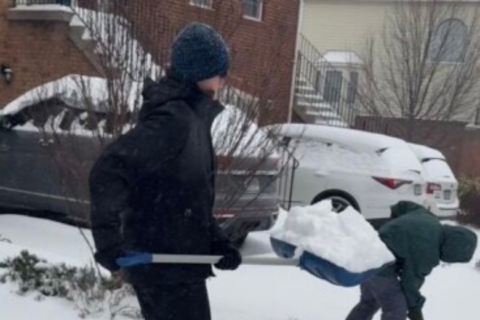
WASHINGTON — The opioid epidemic is gripping the country, and it is not getting any better.
“What I’m seeing here, unfortunately, is more heroin overdoses,” said Loudoun County Sheriff Mike Chapman. “Looking at the several heroin deaths Loudoun County has had already this year and several last year, it is shocking.”
Especially since Loudoun County, Virginia is considered one of the richest counties in the country.
“But it’s happening,” Chapman said. “It’s happening everywhere. It’s happening in all ages. It doesn’t matter what your income is, it doesn’t matter where you live in the county. This is affecting everybody. And awareness is the key. Making sure everybody knows it out there. And stay away from it because once you try it you’re done, you’re going to be addicted to it.”
Chapman spoke at an event in Leesburg, Virginia on Saturday aimed at addressing law enforcement’s latest efforts in the opioid epidemic. Acting DEA Administrator Chuck Rosenberg joined state and federal law enforcement leaders at a travelling DEA Drug Museum exhibit called “Drugs: Costs & Consequences.” They said education is a key tool in addressing the epidemic.
The event was held in conjunction with National Prescription Drug Take-Back Day. The museum was one more than 5,000 drug drop-off locations across the U.S.
Rosenberg said that last year’s drug take-back day, which was held in September, reaped 742,000 pounds of unwanted and expired drugs — about 10-percent of those drugs were opioids. “Even if that’s true, only 10 percent, that is 74,000 pounds of opioids off the street,” Rosenberg said.
Getting the opioids off the street is huge because opioid abuse leads to heroin abuse, he said.
One part of the solution is arrests, especially the arrests of the drug distributors.
“We can’t solve this problem alone,” said Karl Colder, a special agent in charge at the DEA’s Washington Division Office.
Colder said law enforcement has to team up with prevention, rehabilitation, treatment and educational professionals to get the message out. They also have to educate the public — particularly parents.
“They have to understand that this is a reality and that they have to talk to their kids about this,” he said. “Our school systems have to be more open about this because the abusers are a lot younger now.”







